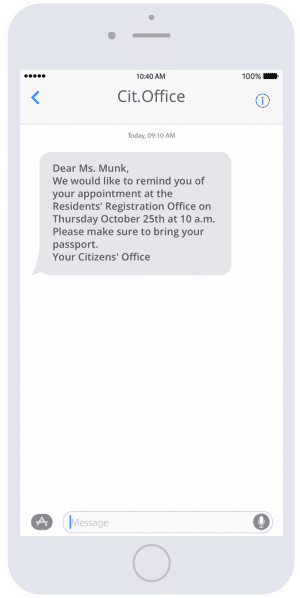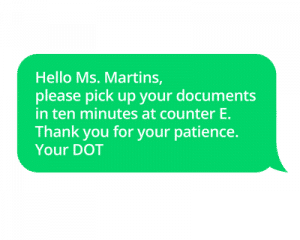How SMS in public authorities are used to simplify processes and expand the range of services
Authorities of all kinds deal with many people, who could not be more diverse, on a daily basis. SMS can help to optimize both processes and communication between authorities and their customers. The benefits are obvious: not every person can install an app, SMS messages can be pre-scheduled, they’re more flexible than phone calls, and they attract more attention than emails. If you add a reply option, you can also use SMS as a full-fledged alternative communication channel. If you aim to do this, all you need is your own inbound number.
Let’s take a look at the purposes for which SMS are most commonly used in government agencies as a service to citizens.

